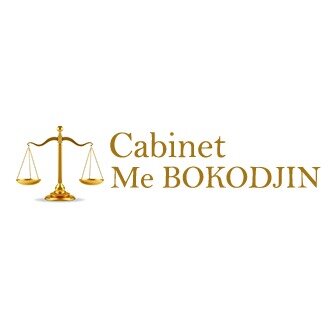Best Energy, Environment & ESG Lawyers in Togo
Share your needs with us, get contacted by law firms.
Free. Takes 2 min.
Or refine your search by selecting a city:
List of the best lawyers in Togo
About Energy, Environment & ESG Law in Togo
Energy, Environment, and ESG (Environmental, Social, and Governance) law in Togo is a growing field that addresses the challenges of sustainable development in the country. With increasing investments in the energy sector, particularly in renewable resources, and heightened concerns over environmental protection, the Togolese legal framework aims to balance economic growth with sustainable practice. ESG principles are becoming more relevant as international investors and local stakeholders demand higher standards of corporate responsibility and transparency. The legal landscape is shaped by national statutes, government policies, and international agreements that Togo has ratified, all of which set expectations for responsible energy production, environmental preservation, and adherence to ESG criteria in business operations.
Why You May Need a Lawyer
Legal support is essential for anyone involved in the energy, environment, or ESG sectors in Togo due to the complexity of the regulations and the potential for significant risks. Common situations that may require a lawyer include:
- Securing government permits or licenses for energy or environmental projects
- Ensuring compliance with environmental regulations and impact assessments
- Negotiating energy contracts, power purchase agreements, or joint ventures
- Addressing disputes over land use, pollution, or natural resource use
- Managing risks related to corporate governance and stakeholder interests
- Complying with international sustainability standards and investor requirements
- Responding to allegations of environmental damage or non-compliance with ESG criteria
An experienced lawyer can help navigate local laws, represent clients in negotiations or litigation, and ensure that all legal obligations are met throughout the lifecycle of a project or business operation.
Local Laws Overview
Togo has developed various laws and regulations pertinent to energy, environmental protection, and ESG:
- The legal framework for the energy sector includes the Electricity Code and relevant ministry regulations, which encourage investment in renewable energy and regulate electricity production, transmission, and distribution.
- Environmental protection is governed by the Environmental Code and the Forest Code, requiring environmental impact assessments (EIA) for certain projects and setting standards for pollution control and biodiversity conservation.
- The mining sector is regulated by the Mining Code, which includes environmental responsibilities for resource extractors.
- ESG requirements are not yet codified in a single comprehensive law but are addressed through corporate obligations, anti-corruption statutes, labor laws, and international commitments such as the United Nations Sustainable Development Goals (SDGs).
- Togo is party to several international environmental and climate change agreements, which influence domestic regulatory practice.
These laws are enforced by governmental authorities such as the Ministry of Environment and Forest Resources, the Ministry of Mines and Energy, and independent regulatory commissions. Compliance is regularly monitored, and violations can result in fines, suspension of operations, or even criminal prosecution.
Frequently Asked Questions
What are the main environmental regulations for businesses in Togo?
Businesses must comply with the Environmental Code, which covers pollution limits, waste management, and requires environmental impact assessments for projects with potential environmental risks.
How do I obtain an energy project license in Togo?
You must apply through the Ministry of Mines and Energy, demonstrating compliance with technical, safety, and environmental standards. The process usually includes public consultations and environmental assessment submissions.
What is an Environmental Impact Assessment (EIA) and when is it required?
An EIA is a formal study to evaluate the predicted environmental effects of a proposed project. It is required before the authorization of most infrastructure, energy, mining, or industrial projects.
What happens if my business fails to comply with environmental regulations?
Non-compliance may result in administrative sanctions, fines, mandatory remediation, suspension of business licenses, or criminal charges in severe cases.
Are there incentives for investing in renewable energy in Togo?
Yes, the government offers various incentives, including tax exemptions and funding support, to promote the development and deployment of renewable energy technologies.
How does Togo address climate change in its legal framework?
Togo has adopted national strategies for climate change mitigation and is a signatory to key international agreements such as the Paris Agreement, integrating these commitments into its domestic policies and laws.
What are ESG requirements for companies operating in Togo?
Companies, especially those attracting foreign investment, are expected to adhere to ethical business practices, ensure environmental sustainability, provide safe and fair working conditions, and implement transparent governance structures.
Which authorities regulate the energy sector in Togo?
The Ministry of Mines and Energy, the Togolese Agency for Rural Electrification and Renewable Energy, and the national electricity regulator oversee different aspects of the energy sector.
Can local communities participate in decision-making about energy or environmental projects?
Yes, Togolese law encourages stakeholder engagement and public consultations, especially during EIAs and the planning of major projects.
What is the process for resolving disputes in the energy or environmental sectors?
Disputes can be handled through administrative review, negotiation, mediation, or, if necessary, litigation before competent courts or arbitration panels.
Additional Resources
People seeking legal advice or more information on energy, environment, or ESG matters in Togo can contact the following:
- Ministry of Environment and Forest Resources - for environmental regulations and permits
- Ministry of Mines and Energy - for energy sector policies, licenses, and incentives
- Togolese Agency for Rural Electrification and Renewable Energy - for renewable energy projects
- Environmental NGOs such as JVE Togo and Togo Environnement Plus
- The national bar association for referrals to specialized lawyers
- Regional and international organizations involved in sustainable development, such as the West African Development Bank (BOAD) and the United Nations Development Programme (UNDP) office in Togo
Next Steps
If you need legal assistance with energy, environment, or ESG issues in Togo, consider the following actions:
- Clearly define your legal needs and gather all relevant documentation for your project or issue
- Seek out a lawyer or legal firm with expertise in Togolese energy, environmental, or corporate law, and preferably experience with ESG matters
- Arrange an initial consultation to assess your situation, potential risks, and necessary compliance steps
- Engage your legal advisor to liaise with regulatory authorities, draft or review contracts, ensure environmental compliance, or represent you in disputes as needed
- Stay informed about regulatory changes by following updates from relevant ministries and participating in industry forums or seminars
A knowledgeable legal advisor can help you successfully navigate the regulatory landscape and meet all obligations while advancing your business or project in Togo's growing energy and environmental sectors.
Lawzana helps you find the best lawyers and law firms in Togo through a curated and pre-screened list of qualified legal professionals. Our platform offers rankings and detailed profiles of attorneys and law firms, allowing you to compare based on practice areas, including Energy, Environment & ESG, experience, and client feedback.
Each profile includes a description of the firm's areas of practice, client reviews, team members and partners, year of establishment, spoken languages, office locations, contact information, social media presence, and any published articles or resources. Most firms on our platform speak English and are experienced in both local and international legal matters.
Get a quote from top-rated law firms in Togo — quickly, securely, and without unnecessary hassle.
Disclaimer:
The information provided on this page is for general informational purposes only and does not constitute legal advice. While we strive to ensure the accuracy and relevance of the content, legal information may change over time, and interpretations of the law can vary. You should always consult with a qualified legal professional for advice specific to your situation.
We disclaim all liability for actions taken or not taken based on the content of this page. If you believe any information is incorrect or outdated, please contact us, and we will review and update it where appropriate.
Browse energy, environment & esg law firms by service in Togo
Togo Attorneys in related practice areas.
Browse energy, environment & esg law firms by city in Togo
Refine your search by selecting a city.











